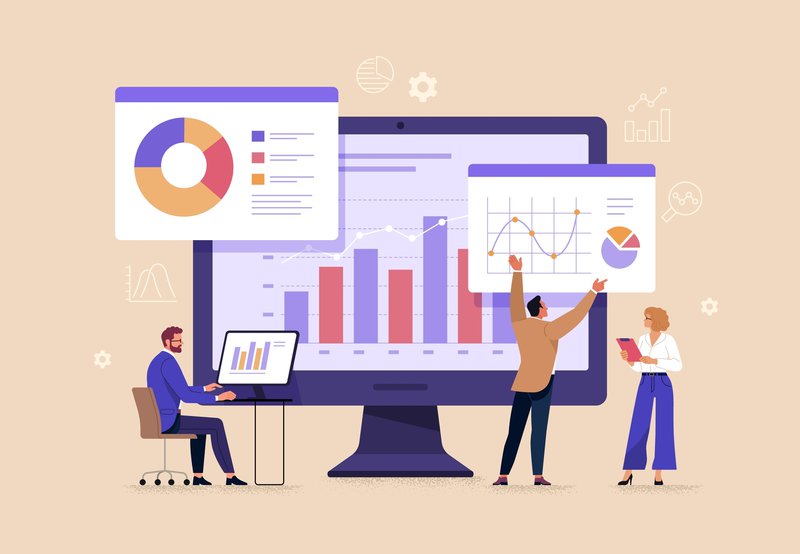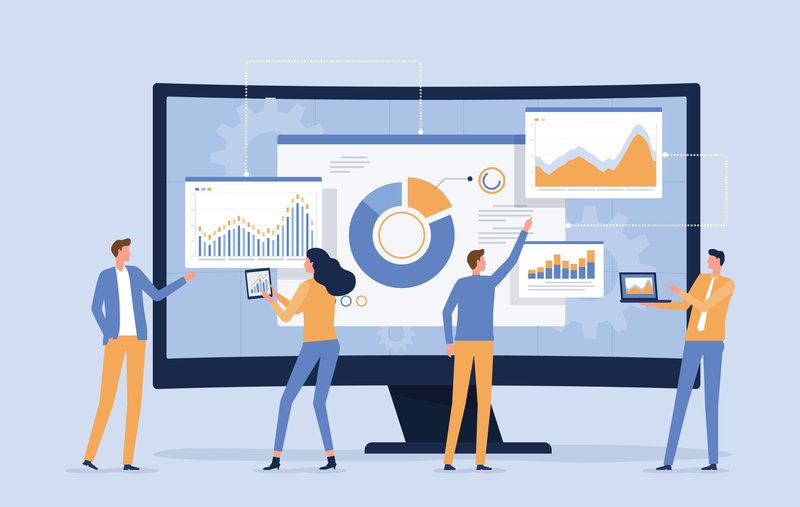Outdated dashboards can be like wearing blinders in a bustling market; they obscure valuable opportunities and hinder strategic decision-making. In an environment where timely data can mean the difference between seizing an opportunity or missing out, relying on stale metrics is simply not an option. The ability to visualize and interpret data effectively is crucial for driving growth and maintaining a competitive edge.
Imagine having a dashboard tailored specifically to your role—one that highlights the insights most relevant to you. This level of customization transforms data from a confusing maze into a clear path forward. With real-time updates and seamless integrations, teams can respond swiftly to changes, ensuring that every decision is informed and impactful. A modern approach to financial management is the key to sustainable growth, and enhanced dashboards play a critical role in this transformation.
How Accountability Enhances Financial Dashboards
A modern financial dashboard should do more than just display numbers. It should empower teams with the insights they need to make informed decisions. Businesses today require tools that adapt to their specific needs, providing real-time visibility into financial performance and operational efficiency. Without this level of adaptability, organizations risk falling behind in a landscape where agility and data-driven strategies are key to success.
By leveraging customizable dashboards, real-time data visualization, and seamless integrations, businesses can ensure that financial insights are always accurate, relevant, and actionable. These enhancements enable teams to anticipate challenges, seize opportunities, and maintain a strong financial foundation in an ever-evolving market.
Customizable Dashboards for Role-Specific Insights
One-size-fits-all dashboards often lead to inefficiency, as they fail to present users with the most relevant data. Customizable dashboards solve this problem by allowing organizations to tailor views according to specific roles, ensuring that each team member has access to insights that align with their responsibilities. A finance officer may prioritize budget adherence and cash flow projections, while an executive might focus on revenue trends and profitability.

Customization streamlines workflows by eliminating unnecessary data, reducing information overload, and enhancing engagement. When individuals can easily access the metrics that matter most to them, they are better equipped to make data-driven decisions that directly impact their areas of expertise.
Real-Time Data Visualization for Quick Decisions
The ability to visualize financial data in real time is crucial for staying ahead of the competition. Static reports quickly become outdated, limiting the ability to react to evolving business conditions. Real-time dashboards enable teams to monitor trends as they unfold, allowing for immediate analysis and strategic adjustments.
For instance, a sudden drop in revenue can be detected instantly, prompting swift action to investigate and resolve the issue. A marketing campaign’s performance can be evaluated in real-time, providing insight into engagement metrics and return on investment (ROI). This proactive approach ensures that financial strategies remain agile and responsive to market conditions.
KPI Tracking to Monitor Financial and Operational Performance
Tracking key performance indicators (KPIs) is essential for maintaining financial stability and operational efficiency. A well-structured dashboard consolidates both financial and operational KPIs, offering a holistic view of performance.
Financial KPIs such as revenue growth, profit margins, and cash flow help organizations measure financial health, while operational KPIs like project efficiency and client retention rates provide insights into overall business performance. By linking creative and operational metrics with financial data, teams can better understand the relationship between investment and outcomes, driving smarter decision-making.
Automated Alerts and Notifications for Immediate Action
Financial management requires constant vigilance, and automated alerts ensure that key stakeholders remain informed about significant changes. These notifications can be configured to trigger when predefined thresholds are met, providing an added layer of control and oversight.

For example, if operational costs exceed a set limit, an alert can prompt immediate review and corrective action. If revenue targets are falling short, decision-makers can receive notifications to adjust strategies accordingly. This proactive system ensures that financial risks are mitigated before they escalate, helping organizations maintain stability and efficiency.
Integration with Key Business Tools for a Unified View
A financial dashboard is most effective when it is fully integrated with other essential business tools. By connecting financial data with AI-driven analytics and operational platforms, organizations can gain deeper insights into how different aspects of their business interact.
For example, integrating dashboards with CRM systems provides visibility into client relationships and revenue streams, while linking financial data with budgeting software ensures seamless financial planning. This level of connectivity creates a comprehensive financial ecosystem where data flows effortlessly across departments, improving collaboration and strategic alignment.
The Power of Data-Driven Financial Management
A well-structured financial dashboard is not just a reporting tool—it is a strategic asset that drives decision-making and enhances overall business performance. Organizations that leverage real-time data, automated alerts, and seamless integrations are better positioned to make proactive decisions that contribute to growth and profitability.
Rather than relying on outdated reporting methods, it is time to embrace a smarter, more efficient approach to financial management. With advanced dashboards, teams can transform raw data into actionable insights, ensuring that every financial decision is backed by accurate and timely information.
Are your dashboards empowering your organization to thrive? If not, it may be time to explore a solution that provides real-time insights, automation, and seamless integration. Request a free demo to discover how Accountability can elevate your financial management strategies.


